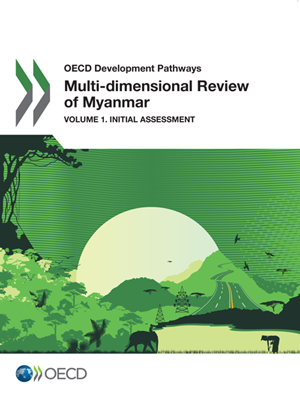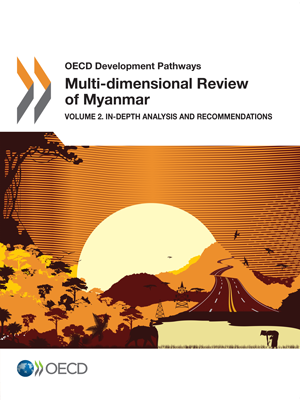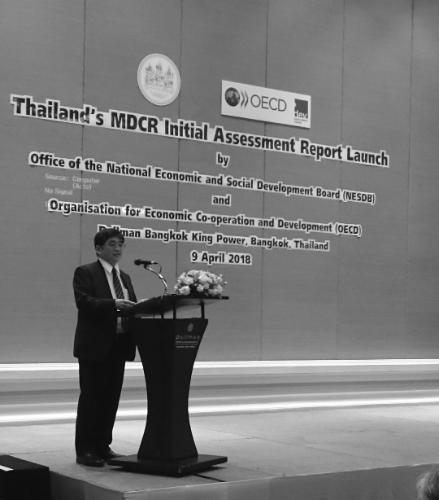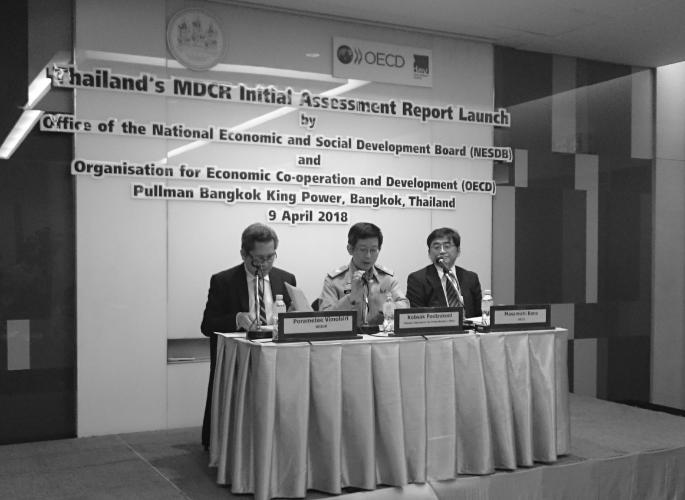|
Multi-dimensional Review of Myanmar - Vol. 1 - Initial Assessment Myanmar’s success in achieving stable and sustainable growth will depend vitally on its ability to develop the institutional and social capital necessary to maintain macroeconomic and financial stability, to ensure the rule of law, to achieve environmentally sustainable development and to create an enabling environment for the private sector. To be sustainable, growth also needs to be more equitable and inclusive. Seizing the momentum created by the country’s opening and internal peace process will be imperative. Moreover, Myanmar’s increasing population provides a demographic dividend which needs to be reaped in the next couple of decades to boost the potential of the economy. After that, the population will begin ageing and Myanmar risks getting old before the incomes and living standards of its people can significantly improve. Read online: Chapter 1. Myanmar at a crossroad Chapter 2. Achieving stable and sustainable development Chapter 3. For more inclusive growth and equitable opportunities Press release : Getting Rich before Growing Old: Jump-starting development in Myanmar ahead of population ageing, says OECD report |
||
|
Multi-dimensional Review of Myanmar - Vol. 2 - In-depth Analysis and Policy Recommendations Building on an initial assessment of constraints to development in Myanmar (Volume 1), this second volume provides analysis and policy recommendations in three key areas: structural transformation, education and skills, and financing development. Chapter 1. Assessment and recommendations Chapter 2. Structural transformation towards a modern economy: Upgrading agriculture, manufacturing and services Chapter 3. Filling the skills gap in Myanmar Chapter 4. Providing the financial resources to support development Full publication : English / Burmese Pocket Edition : English / Burmese
|
||
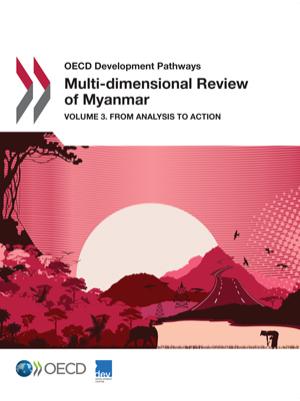 |
Multi-dimensional Review of Myanmar - Vol. 3 - From Analysis to Action Myanmar is in need of a structural transformation from an agrarian economy to one based more on a mix of modern activities, including manufacturing and services. Modernising the agricultural sector by building linkages to complementary non-agricultural activities – an “agricultural value chain” approach – could set in motion this process of structural transformation. Furthermore, given Myanmar’s level of economic development, its large rural population and the weight of agriculture in the economy, a development strategy that puts agriculture and rural development at its core has the potential to make a significant positive impact for millions. This third report of the Multi-dimensional Review of Myanmar synthesises the findings and recommendations from the first two reports according to the following priorities as defined by stakeholders in Myanmar: supporting the agri-food sector’s ability to respond to market demand for quality products; introducing innovative models of delivering extension services and training to upgrade agronomic and technical skills; providing the conditions for a vibrant financial system that meet the needs of rural areas; strengthening land rights; engaging citizens in the policy making process; and managing and maximising the benefits of emigration from rural areas. |
|
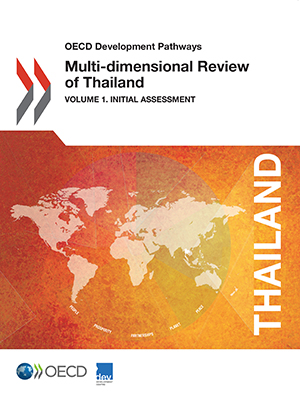 |
Multi-dimensional Review of Thailand - Vol. 1 - Initial Assessment
Rising prosperity has not been shared equally across the country and economic transformation needs a boost. The share of those in precarious employment still exceeds half of the working population. The creation of new activities replacing low-productivity ones has slowed while rural migrants and urban poor lack the skills required for modern urban jobs. While Bangkok’s success as a metropolis has been key to Thailand’s transformation, thriving secondary cities are needed that can develop new sources of growth.
Experience shows that development is not about getting everything right, but about getting right what matters most. The Initial Assessment of this Multi-Dimensional Review endeavours to identify the challenges and key constraints that must be overcome for Thailand to succeed. It offers recommendations related to informality, productivity and the management of natural resources, particularly water.
|
|
Launch event, Bangkok, 9 April 2018 |
|
|
|
|


